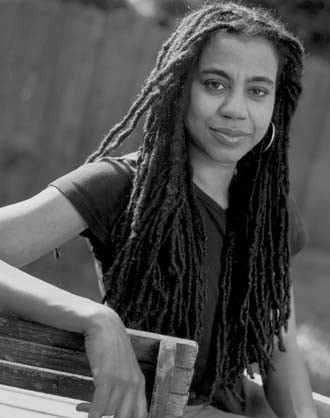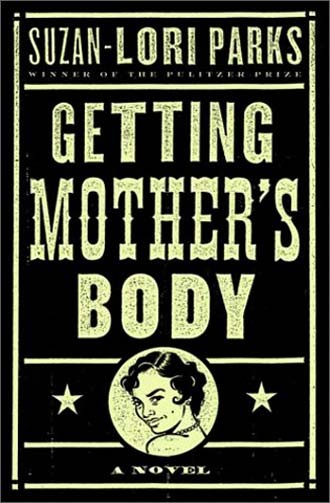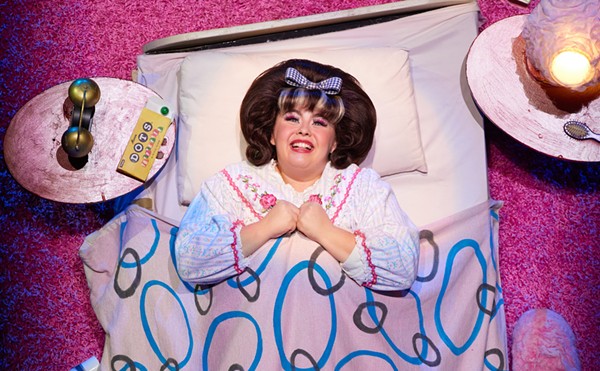| Pulitzer Prize-winning playwright Suzan-Lori Parks' debut novel, Getting Mother's Body, is set in Texas, where Parks spent some of her childhood. Courtesy photo |
Playwright Suzan-Lori Parks admits that writing novels was her first passion. In a college master class taught by James Baldwin, she felt that she was well on her way to becoming a novelist. That changed when Baldwin noted the dramatic sensibility in Parks' fiction writing, and asked her if she had considered writing for the theater.
"Oh, I loved Mr. Baldwin," she says in a telephone conversation during a recent book tour to promote her debut novel, Getting Mother's Body. "I owe who I am today to him."
Parks is an award-winning playwright, and the first black woman to receive the Pulitzer Prize for drama. Recent credits include her screenplay for the 1996 Spike Lee film, Girl 6. Her play, In the Blood, was a runner-up for the 2000 Pulitzer Prize. In 2001, she received a MacArthur "genius" grant; and in 2002, she was awarded the Pulitzer for her play, Topdog/Underdog, a Cain-and-Abel story of two brothers named Lincoln and Booth by their jesting father. One is a three-card monte card shark; the other works in an arcade, where he dresses up as Lincoln in whiteface as tourists try to shoot him. Parks said that she was inspired by watching card hustlers on the streets of New York City, and by the idea of "doing a play about Lincoln, who is assassinated while he is watching a play."
Although rumor has it that she spent only three days writing Topdog, it took her seven years to complete her first novel, Getting Mother's Body. Twenty years after her first play was produced, Parks, now 40, was a bit surprised when TV host Charlie Rose called her "an overnight success." She coolly returned his salvo: "It's been a very long night, Charlie."
Set in the small Texas town of Lincoln in 1963, Parks' new novel, Getting Mother's Body, opens with its pregnant teenage protagonist, Billy Beede, doing the dirty deed with Clifton Snipes, a coffinmaker. But readers quickly learn it is Lazarus Jackson, a funeral house operator, who wants to marry Billy. The gothic tale has the dead speaking and singing the blues as if it were the most natural thing under the hot Texas sky. At times, its plot takes on the freewheeling aspects of a Six Feet Under episode - if it were directed by Spike Lee. Just as Billy learns that her deceased mother, Willie Mae, may have been buried with a fortune of jewels, she receives a letter informing her that her mother's plot is about to be bulldozed in Arizona. Before you can say Cannonball Run, the cast of characters joins in the race to be the first to dig up Willie Mae.
The Texas setting is no literary fluke. The novel is dedicated to Parks' mother: "Francis Ammon - the first Texan I ever knew."
"She was born in Greenville, but grew up in West Texas," explains Parks. And while she wasn't born in Texas, Parks spent several years growing up here. "Mom wanted to live around her family while my Dad was in Vietnam. So it was good for all of us. I loved it out there really. You live in San Antonio, where it's gorgeous and delightful." I interrupt and tell her it is 92 degrees in the shade. "Yeah, but it's beautiful," she replies. "West Texas is kind of bare and spare. But I love West Texas, I do. It's my favorite place on the planet."
The writer courses her move from a wannabe novelist to playwright and then back to novelist succinctly: "From the page to the stage and then from the stage to the page." It is easy to trace Getting Mother's Body's theatrical underpinnings. On the audio CD of the book, the blues songs that appear as lyrics on the printed page are actually sung by Parks, accompanied by her husband, musician Paul Oscher. Other small details in the novel recall moments or situations in her plays: the name of the town where Billy lives is Lincoln; the brother in Topdog keeps his inheritance buried; and a ring scam echoes the hustle of three-card monte.
| GETTING MOTHER'S BODY By Suzan-Lori Parks Random House $23.95, 272 pages ISBN: 1400060222 |
Fucking A - the A stands for abortionist, not adulteress - which had a short run on Broadway this year, premiered in Texas at Houston's Infernal Bridegroom in 2000. Topdog/Underdog will have an area premiere when the national traveling company hits the Dallas Theater Center in late February. In March, San Antonio's black theater company, the Renaissance Guild, will present its production of In the Blood at Jump-Start Theater.
Parks heads the dramatic writing program at CalArts in Valencia, California. She is currently writing a teleplay based on Toni Morrison's novel, Paradise, for Oprah Winfrey's Harpo Productions - a daunting task, but one of which she feels capable.
"I have to be myself. I have to be completely respectful of `Morrison's` brilliance, and at the same time, completely respectful of the art form called the teleplay - and be mindful of the fact that a `certain` bit might not work well in a teleplay," she says. "So let us cut that away and concentrate on the things that do work."
For Parks, what works in her plays is resurrection: digging up the dead and giving them new life on the stage. •

















